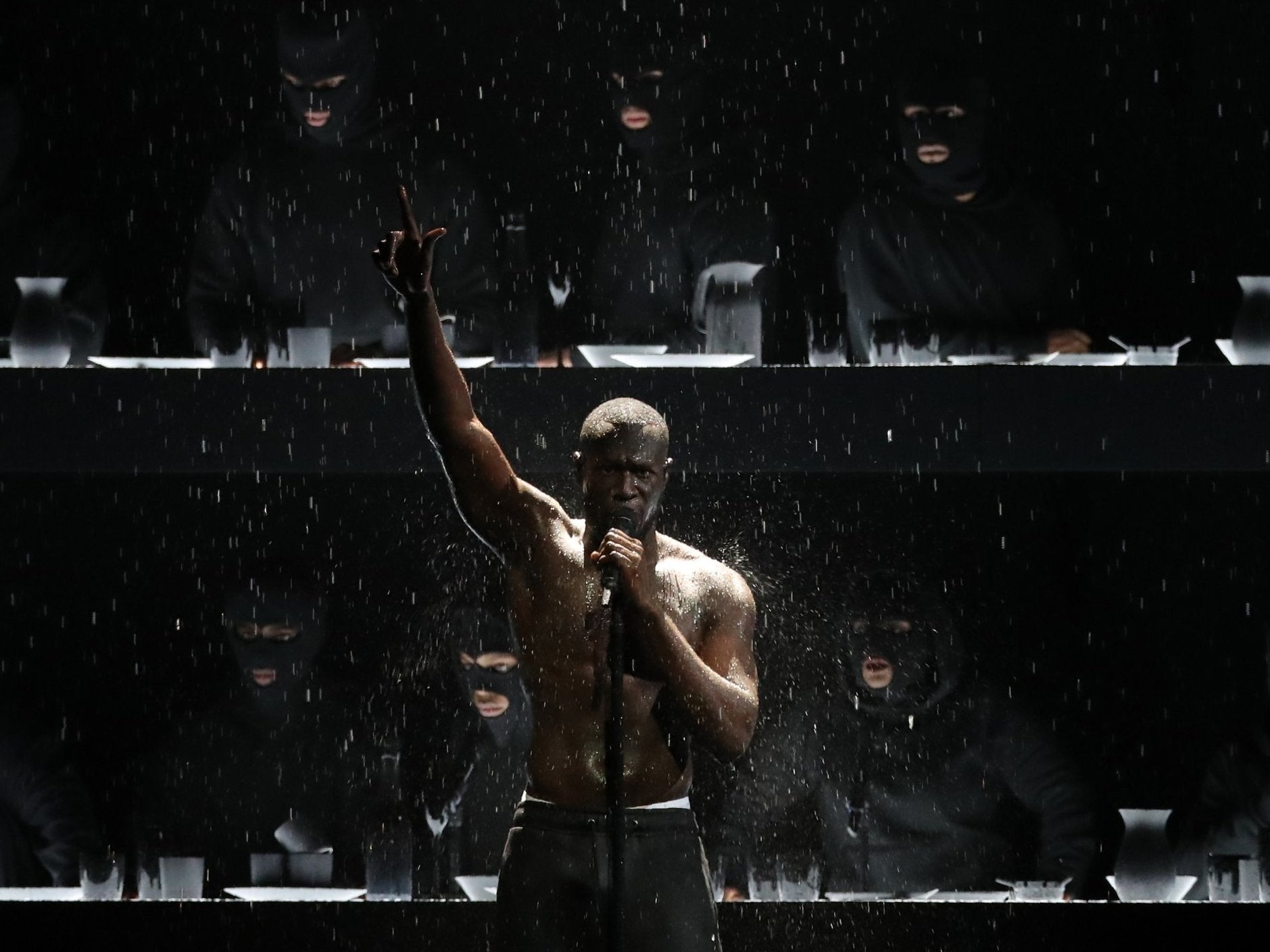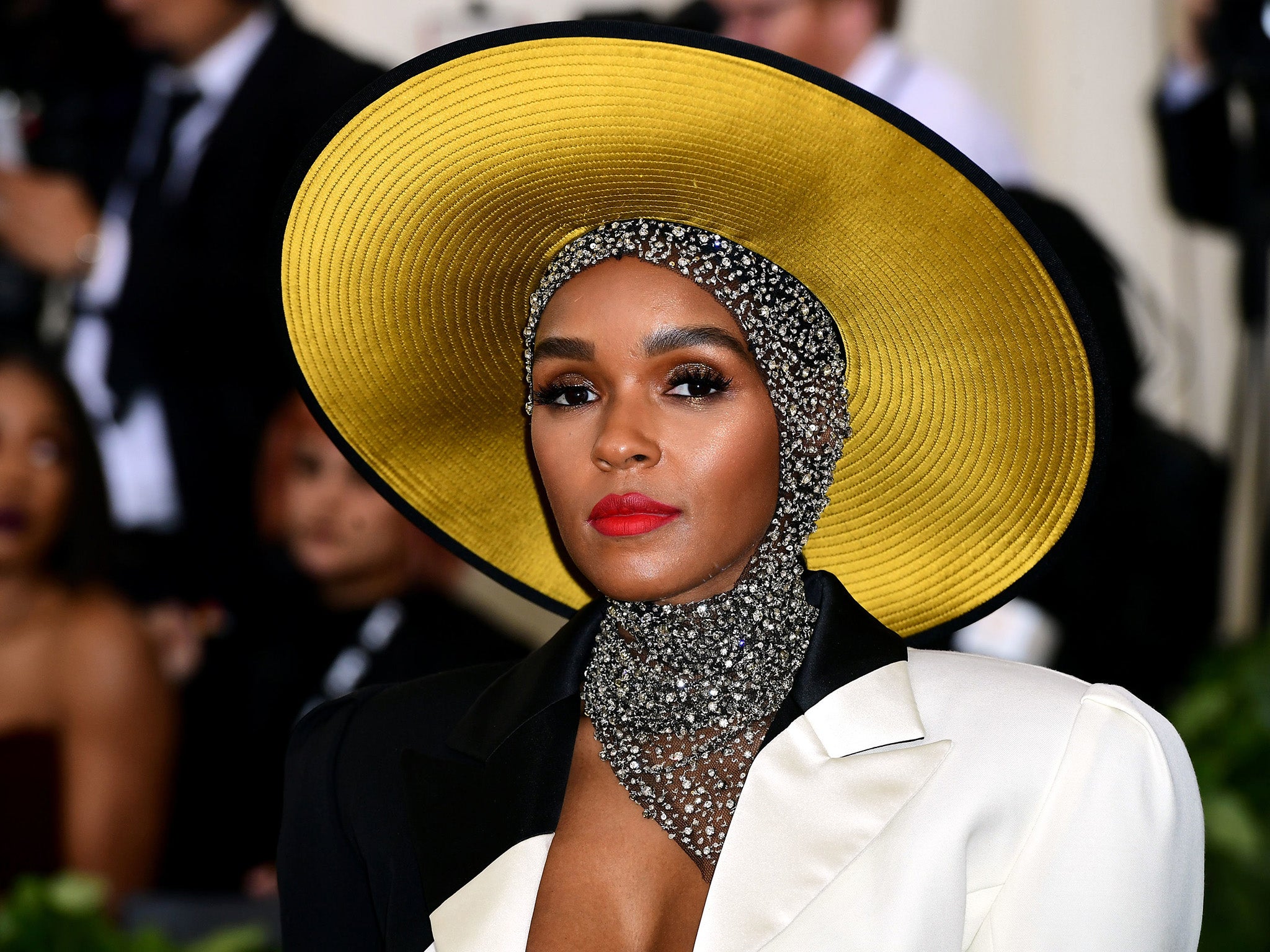From Stormzy to Janelle Monae – this was the year that the music industry stood up to injustice
Pop stars are no longer reluctant to speak out about politics, writes Alexandra Pollard


Your support helps us to tell the story
From reproductive rights to climate change to Big Tech, The Independent is on the ground when the story is developing. Whether it's investigating the financials of Elon Musk's pro-Trump PAC or producing our latest documentary, 'The A Word', which shines a light on the American women fighting for reproductive rights, we know how important it is to parse out the facts from the messaging.
At such a critical moment in US history, we need reporters on the ground. Your donation allows us to keep sending journalists to speak to both sides of the story.
The Independent is trusted by Americans across the entire political spectrum. And unlike many other quality news outlets, we choose not to lock Americans out of our reporting and analysis with paywalls. We believe quality journalism should be available to everyone, paid for by those who can afford it.
Your support makes all the difference.Gone are the days when popstars were expected to shut up and play the hits. “Some artists deliberately don’t have strong opinions,” said Chvrches’ Lauren Mayberry earlier this year. “In this current moment, some people are gonna look back on that and look pretty f***ing irresponsible and heartless.” As 2018 saw a sea change in the world’s political, cultural and social landscapes, many of the music industry’s most prominent members stepped up.
In February, grime artist Stormzy disrupted the Brit Awards’ usual bland proceedings with a tirade against the British prime minister. “Theresa May, where’s the money for Grenfell?” he asked in a freestyle that closed the show, referencing the tower block fire that killed 72 people in west London.
A £9m refurbishment of the flats before the tragedy focused not on safety improvements, but on making the building more aesthetically pleasing.
“What, you thought we just forgot about Grenfell?” continued the 25-year-old. “You criminals, and you got the cheek to call us savages. You should do some jail time, you should pay some damages, we should burn your house down and see if you can manage this.” It was a bold diatribe, and one of 2018’s most powerful examples of an artist using their platform to enact change – or, at least, to try to.
Elsewhere, Taylor Swift finally stuck her head above the political parapet and urged her 112 million Instagram followers to vote Democrat in the US midterm elections. “In the past, I’ve been reluctant to publicly voice my political opinions,” she wrote in a post that decried LGBT+ rights abuses and systemic racism. “But due to several events in my life and in the world in the past two years, I feel very differently about that now.”
After her post was published, the US voter registration service experienced a spike in numbers.
The growing integration of queer popstars into the mainstream, though, must not be treated as a fad
Eminem waded into the political mire, too, on his surprise album Kamikaze. “I empathise with the people this evil serpent sold the dream to that he’s deserted,” he rapped of President Donald Trump on “The Ringer”.
On “Fall”, though, he proved himself oblivious to the turning social tides, attacking rapper Tyler, the Creator with the line, “Tyler create nothing, I see why you called yourself a faggot, bitch”. Unsurprisingly, in a year that synth-pop singer Hayley Kiyoko dubbed “20gayteen”, Eminem’s enduring homophobia did not go down well.
Thankfully, his voice was drowned out by the panoply of LGBT+ popstars (relatively speaking, of course, compared to the heteronormativity we’re used to) who broke new ground this year. Alongside Kiyoko, there was acclaimed new music, with fewer shrouded expressions of queerness, from artists such as Years & Years, Janelle Monae and Sam Smith.

The growing integration of queer popstars into the mainstream, though, must not be treated as a fad. Christine and the Queens, whose second album Chris was The Independent’s album of the year, told this publication, “I’m sometimes a bit scared of how it’s started to be digested, cleverly, by a system of profit."
Then there are missteps such as Rita Ora’s – her track “Girls” was accused of fuelling the male gaze (“Red wine, I just wanna kiss girls,” she sings). Subsequently, Ora clarified her personal relationship with the song, revealing she has dated both men and women.
Progress has been made in some areas, albeit falteringly. At the start of the year, Grammys producer Neil Portnow responded to the lack of female nominees by suggesting that women needed to “step up”, adding, “If someone’s passionate about it, it doesn’t matter what your gender, genre, geography – do it yourself, take it from your heart and put it out there.”
His tone-deaf comments echoed those made by Festival Republic’s Melvin Benn in 2015: “The idea that female bands are sidelined as a suggestion is just not there.” Perhaps this explains why Reading and Leeds festivals’ line-up for 2019 is as testosterone-heavy as ever – despite many other festivals signing a pledge to achieve gender parity by 2022.
Meanwhile, responding to Portnow’s comments, Pink (one of the few female nominees) said, “Women in music don’t need to ‘step up’. Women have been stepping up since the beginning of time.” British popstar Charli XCX agreed. “Ugh bout 2 step up on 2 ur face,” she tweeted. “Women are making amazing music right now.”
She’s right. Pop rock band Wolf Alice, fronted by Ellie Rowsell, won this year’s Mercury Prize with their second album, Visions of a Life. Swedish pop icon Robyn released her first album in seven years, Honey, to critical adoration. Just this month, Ariana Grande set a record for the most viewed music video on YouTube in 24 hours, with her single “thank u, next” – a refreshingly generous break-up anthem.
Thank you, 2018. Next.
Join our commenting forum
Join thought-provoking conversations, follow other Independent readers and see their replies
Comments